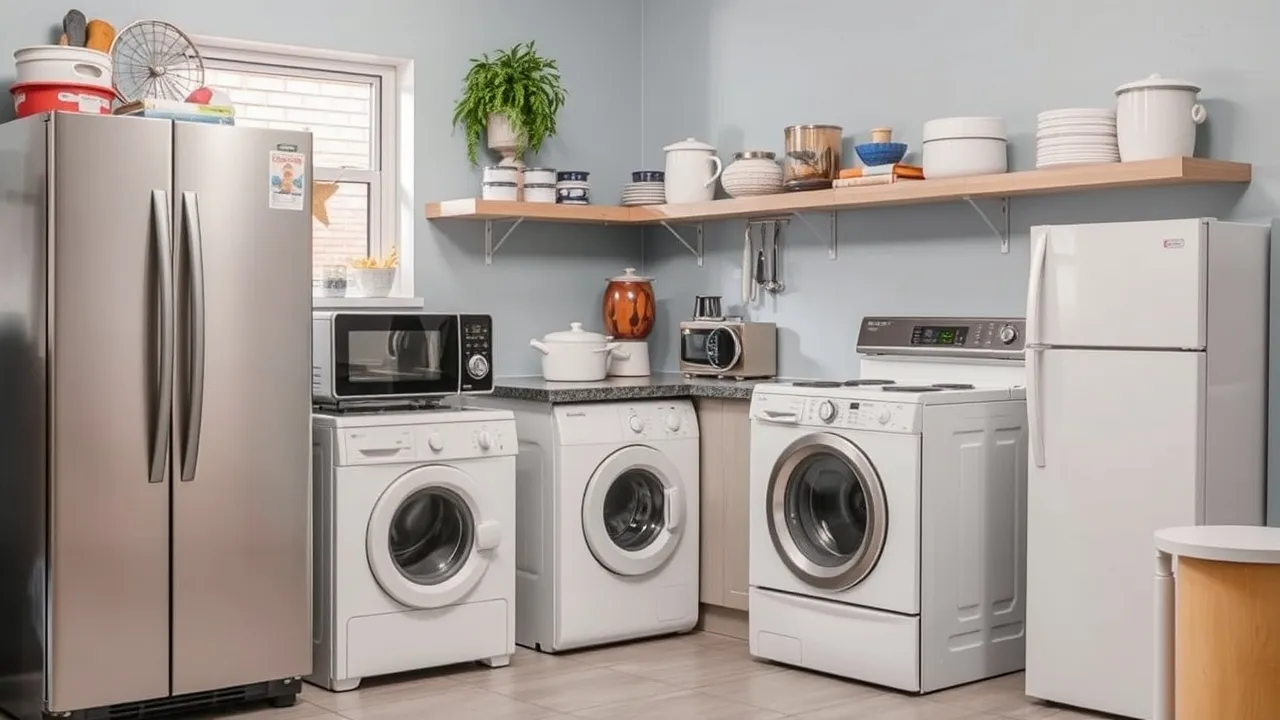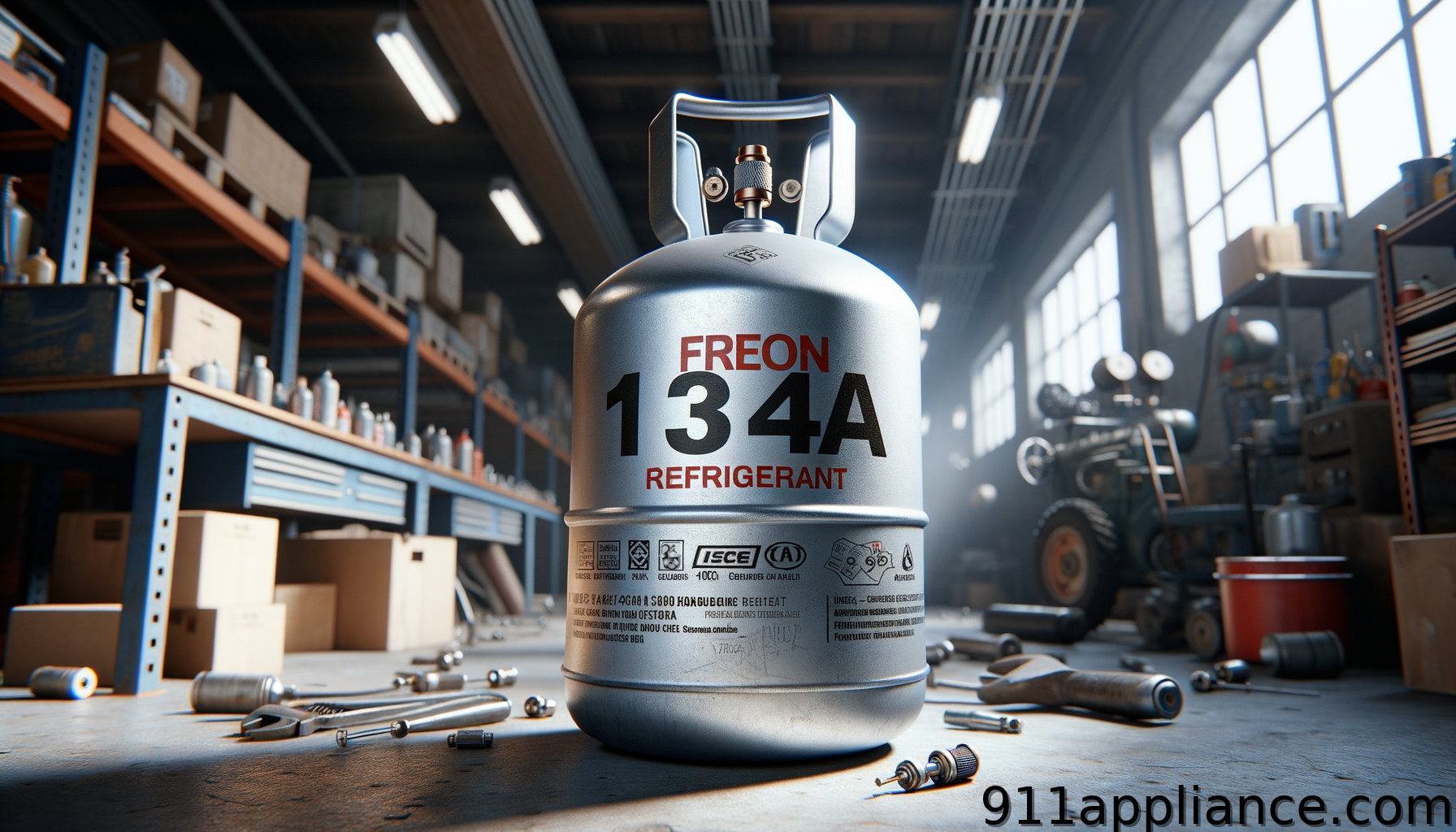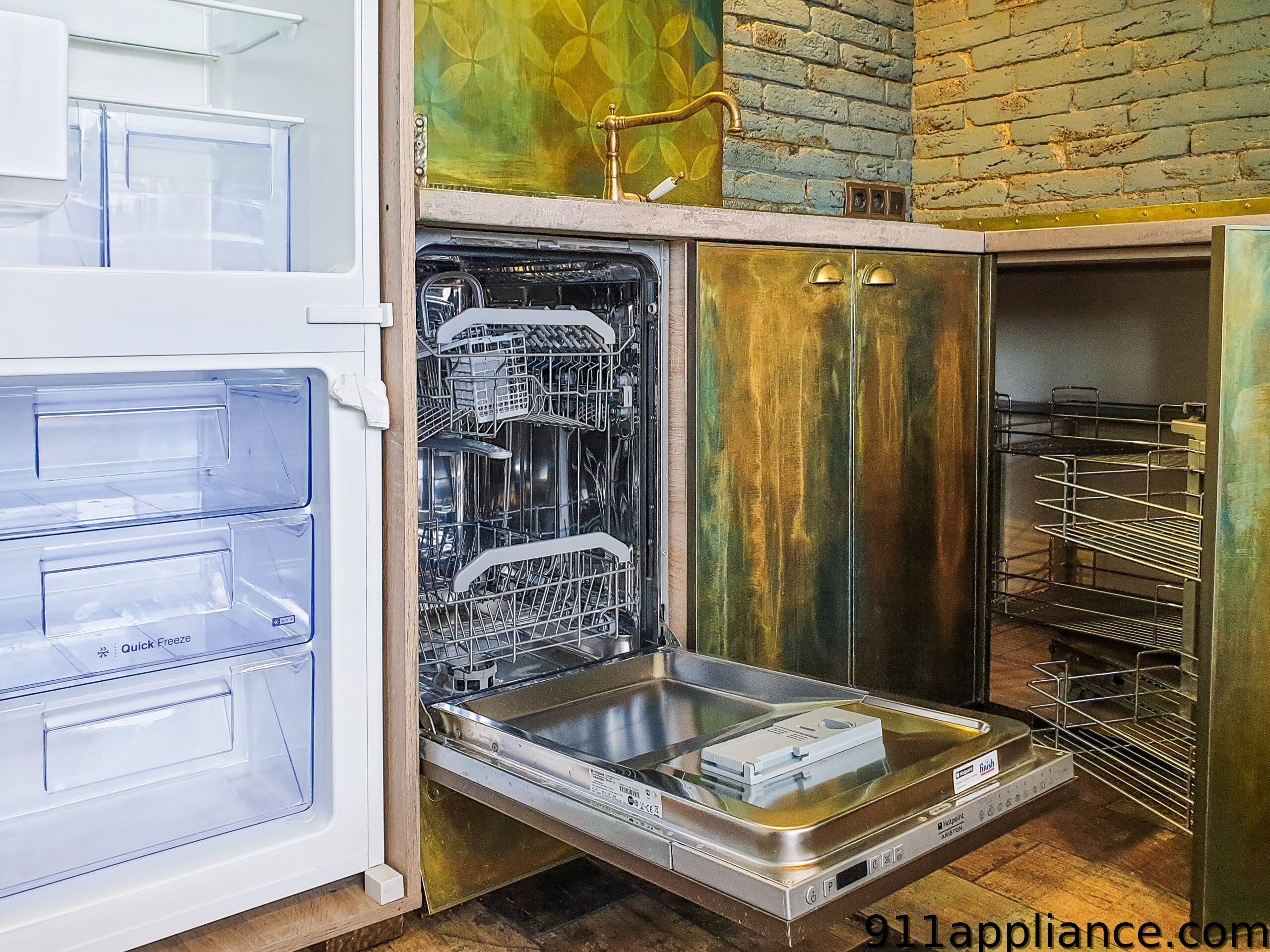Appliances play a crucial role in our daily lives, making our tasks easier and more efficient. From refrigerators and ovens to dishwashers and washing machines, these appliances have become an integral part of our homes. However, like any other machine, appliances can encounter problems and breakdowns. This blog post aims to provide a comprehensive guide on common appliance problems and how to fix them. Whether it’s a leaky dishwasher or a refrigerator that’s not cooling properly, this article will offer step-by-step instructions to troubleshoot and repair various appliance issues.
Table of Contents
- Key Takeaways
- How to identify if your appliance needs repair or replacement
- Tips for maintaining your appliances to prevent breakdowns
- Troubleshooting tips for refrigerators and freezers
- How to fix common oven and stove issues
- Troubleshooting tips for dishwashers and washing machines
- How to diagnose and fix air conditioning problems
- Common issues with microwaves and how to solve them
- Tips for troubleshooting small appliances like toasters and blenders
- When to call a professional for appliance repair
- How can I troubleshoot my appliances to ensure efficient use?
- FAQs
- What are some common appliance problems?
- What should I do if my appliance is not turning on?
- How can I troubleshoot a noisy appliance?
- What should I do if my appliance is leaking water?
- How can I improve the performance of my appliance?
Key Takeaways
- Common appliance problems can often be fixed at home
- Knowing when to repair or replace an appliance can save money in the long run
- Regular maintenance can prevent breakdowns and extend the life of appliances
- Troubleshooting tips for refrigerators, freezers, ovens, stoves, dishwashers, washing machines, air conditioners, and microwaves can help solve common issues
- If unsure or if the problem is complex, it’s best to call a professional for appliance repair.
Common appliance problems and how to fix them
Appliances can experience a range of problems, and it’s important to know how to address them. One common issue is leaks. Leaks can occur in dishwashers, washing machines, and refrigerators, among others. To fix a leaky dishwasher, start by checking the door gasket for any signs of wear or damage. If the gasket is worn out, it will need to be replaced. Another common problem is strange noises coming from appliances. For example, if your washing machine is making a loud banging noise during the spin cycle, it could be due to an unbalanced load. Simply redistribute the clothes evenly in the drum to resolve the issue.
How to identify if your appliance needs repair or replacement
Sometimes, it can be difficult to determine whether an appliance needs repair or replacement. There are several signs to look out for that can help you make this decision. One factor to consider is the age of the appliance. If it’s nearing the end of its expected lifespan, it may be more cost-effective to replace it rather than investing in repairs. Another consideration is the frequency of breakdowns. If your appliance is constantly breaking down and requiring repairs, it may be more practical to replace it with a newer model that is more reliable.
Tips for maintaining your appliances to prevent breakdowns
Regular maintenance is key to preventing breakdowns and extending the lifespan of your appliances. One important tip is to clean your appliances regularly. For example, in the case of a refrigerator, make sure to clean the condenser coils at least twice a year to remove dust and debris. Additionally, check for any signs of wear and tear, such as frayed cords or loose connections. These should be addressed immediately to prevent further damage. By following these maintenance tips, you can keep your appliances in optimal condition and avoid costly repairs.
Troubleshooting tips for refrigerators and freezers
Refrigerators and freezers are essential appliances in any home, and when they encounter problems, it can be a major inconvenience. One common issue is when the refrigerator is not cooling properly. Start by checking the temperature settings to ensure they are set correctly. If that doesn’t solve the problem, check the condenser coils for any dust or debris buildup. Cleaning the coils can improve cooling efficiency. Another common problem is frost buildup in the freezer. This can be caused by a faulty door gasket or a clogged defrost drain. Replace the gasket if necessary and clear any debris from the drain to resolve the issue.
How to fix common oven and stove issues
Ovens and stoves are essential for cooking meals, so when they encounter problems, it can disrupt your daily routine. One common issue is uneven cooking, where one side of the food is cooked more than the other. This can be caused by a faulty heating element or a misaligned oven rack. Check the heating element for any signs of damage and replace it if necessary. Also, make sure that the oven rack is properly aligned to ensure even heat distribution. Another common problem is when the oven is not heating up at all. This could be due to a faulty thermostat or a broken heating element. Test the thermostat with a multimeter and replace it if it’s not functioning properly.
Troubleshooting tips for dishwashers and washing machines
Dishwashers and washing machines are essential for keeping our dishes and clothes clean. When these appliances encounter problems, it can be frustrating. One common issue is when the dishwasher is not draining properly. Start by checking the drain hose for any clogs or kinks. Clear any obstructions and ensure that the hose is properly connected. Another common problem is when the washing machine is not cleaning clothes properly. This can be caused by a clogged detergent dispenser or a worn-out agitator. Clean the dispenser thoroughly and replace the agitator if necessary to improve cleaning performance.
How to diagnose and fix air conditioning problems
Air conditioning units are essential for keeping our homes cool and comfortable during hot summer months. When they encounter problems, it’s important to address them promptly. One common issue is when the air conditioner is not cooling properly. Start by checking the air filter for any dirt or debris buildup. Clean or replace the filter if necessary. Another common problem is when the air conditioner is making strange noises, such as rattling or squealing. This could be due to a loose fan blade or a worn-out belt. Tighten the fan blade or replace the belt to resolve the issue.
Common issues with microwaves and how to solve them
Microwaves are convenient appliances for quickly heating up food, but they can encounter problems as well. One common issue is when the microwave is not heating up properly. This could be due to a faulty magnetron or a malfunctioning high voltage diode. Test these components with a multimeter and replace them if necessary. Another common problem is sparking inside the microwave. This can be caused by a damaged waveguide cover or a dirty interior. Replace the waveguide cover if it’s damaged and clean the interior thoroughly to prevent sparking.
Tips for troubleshooting small appliances like toasters and blenders
Small appliances like toasters and blenders can also encounter problems. One common issue is when the toaster is not turning on. This could be due to a faulty power cord or a blown fuse. Check the power cord for any signs of damage and replace it if necessary. Also, check the fuse and replace it if it’s blown. Another common problem is when the blender is not blending properly. This can be caused by a dull blade or a worn-out motor. Sharpen or replace the blade and test the motor with a multimeter to determine if it needs to be replaced.
When to call a professional for appliance repair
While many appliance problems can be fixed with DIY solutions, there are instances when it’s best to call a professional for repairs. Complex repairs, such as replacing a compressor in a refrigerator or fixing electrical issues in an oven, should be left to trained technicians. Additionally, if you have any safety concerns, such as gas leaks or electrical sparks, it’s important to contact a professional immediately. When looking for an appliance repair service, make sure to choose a reputable company with experienced technicians. Read reviews and ask for recommendations from friends or family to ensure you’re getting quality service.
Appliances are essential in our daily lives, and knowing how to troubleshoot and repair common problems can save us time and money. By following the tips and advice provided in this blog post, you can address various appliance issues and keep your appliances running smoothly. Remember the importance of regular maintenance and take proactive steps to prevent breakdowns. However, if you encounter complex repairs or safety concerns, don’t hesitate to call a professional appliance repair service. By taking care of your appliances, you can ensure their longevity and enjoy their benefits for years to come.
How can I troubleshoot my appliances to ensure efficient use?
When troubleshooting your appliances for efficient use, first check for any visible damage or leaks. Clean the filters and coils regularly to keep them running smoothly. Use the correct settings and avoid overloading. Consider these efficient appliance use tips to save energy and prolong the lifespan of your appliances.
FAQs
What are some common appliance problems?
Some common appliance problems include not turning on, not heating up, making strange noises, leaking water, and not properly cleaning or drying.
What should I do if my appliance is not turning on?
First, check to make sure the appliance is properly plugged in and the outlet is functioning. If that doesn’t work, try resetting the circuit breaker or replacing the fuse. If the problem persists, it may be a faulty component that needs to be replaced.
How can I troubleshoot a noisy appliance?
Check to make sure the appliance is level and on a stable surface. If that doesn’t work, inspect the moving parts for any signs of wear or damage. Lubricating the parts may also help reduce noise.
What should I do if my appliance is leaking water?
Check to make sure all hoses and connections are properly secured and not damaged. If that doesn’t work, inspect the water inlet valve and the pump for any signs of damage or blockages. It may also be a problem with the door seal or gasket.
How can I improve the performance of my appliance?
Regular maintenance, such as cleaning filters and coils, can help improve the performance of your appliance. Using the appliance according to the manufacturer’s instructions and not overloading it can also help.



